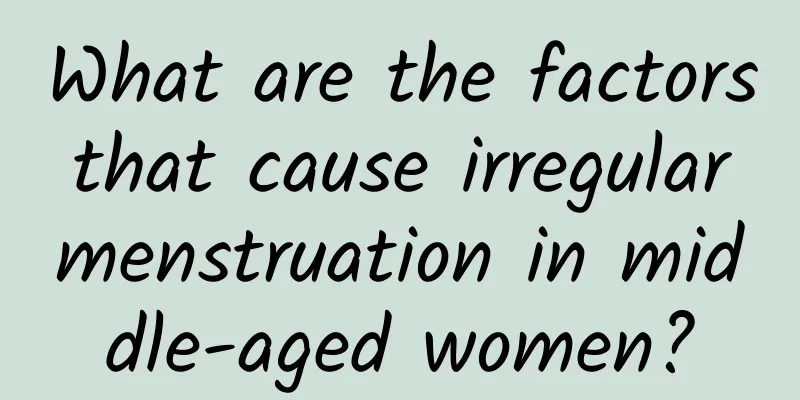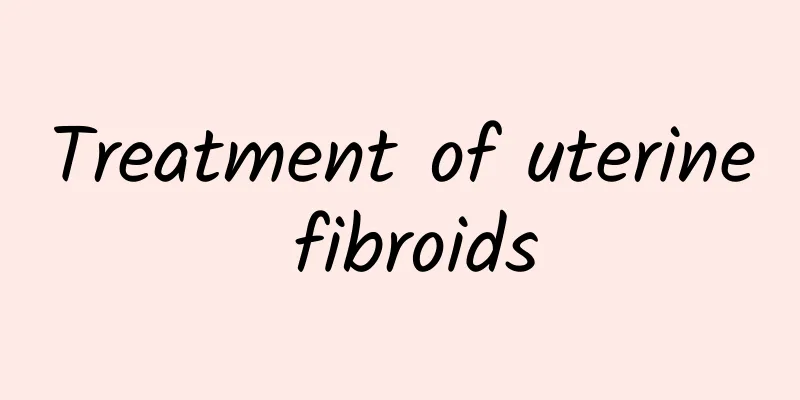How to quickly relieve menstrual pain

|
Dysmenorrhea usually refers to abdominal pain or discomfort during or before and after menstruation. Dysmenorrhea is a common phenomenon for many women during their menstrual cycle, but for some women, dysmenorrhea can be very serious and affect their daily life and work. Dysmenorrhea is usually caused by genetic factors, lifestyle factors, increased prostaglandin levels, uterine contractions, gynecological diseases, etc. Methods for quick pain relief include general treatment, physical therapy, drug therapy, etc. The details are as follows: 1. Genetic factors: Some women may have a genetic predisposition to dysmenorrhea. If there are family members with dysmenorrhea, they are more likely to have dysmenorrhea. There is currently no effective treatment, and it is recommended to strengthen self-care, such as maintaining good living habits, avoiding staying up late, and keeping a happy mood. 2. Lifestyle factors: such as stress, lack of exercise, bad eating habits, smoking and drinking, etc., may affect the severity of dysmenorrhea. It is recommended to change bad living habits, such as avoiding staying up late, keeping a regular schedule, and exercising appropriately. At the same time, avoid eating cold drinks, spicy and other irritating foods, and eat more warm and easily digestible foods. Before and after menstruation, you can take hot compresses, massage and other methods to relieve pain. 3. Increased prostaglandin content: Prostaglandins can cause uterine contraction and vascular contraction, leading to uterine ischemia and hypoxia, and then dysmenorrhea. Prostaglandins can also affect the nervous system, leading to increased pain. It is recommended to use prostaglandin synthase inhibitors, such as ibuprofen, diclofenac sodium and other analgesics to relieve pain as prescribed by the doctor. 4. Uterine contraction: Dysmenorrhea is usually caused by uterine contraction. During menstruation, the uterus contracts to help expel endometrial tissue. If the uterine contraction is too strong, it will lead to insufficient blood supply and cause pain. It is recommended to use some drugs to inhibit uterine contraction, such as nifedipine, atenolol, etc. according to the doctor's advice. At the same time, keeping a happy mood and avoiding excessive tension and anxiety can also help relieve the pain caused by uterine contraction. 5. Gynecological diseases: Endometriosis, pelvic inflammatory disease, adenomyosis, uterine fibroids, etc. may also cause dysmenorrhea. For dysmenorrhea caused by gynecological diseases, it is recommended to treat the primary disease. For dysmenorrhea caused by endometriosis, adenomyosis, etc., you can use contraceptive rings as prescribed by the doctor to relieve pain, or you can take oral contraceptives as prescribed by the doctor, such as desogestrel ethinyl estradiol tablets and drospirenone ethinyl estradiol tablets to relieve it. If the patient has diseases such as adenomyosis and ovarian cysts, it is recommended to seek medical attention in time. You can follow the doctor's advice to use gestrinone capsules, danazol capsules, etc. Severe cases may also require surgical treatment. Patients with dysmenorrhea should maintain a balanced diet and avoid eating foods with too much sugar. Appropriate exercise can promote blood circulation and relieve dysmenorrhea symptoms. During menstruation, the body should be kept warm, avoiding cold and rain. At the same time, attention should be paid to keeping the abdomen warm. Drinking warm water or ginger tea can relieve pain. |
<<: Do endometrial polyps bleed?
>>: How to quickly relieve menstrual pain
Recommend
What foods can thicken the uterine lining?
Endometrial thickening is second only to cervical...
Can progesterone prevent spontaneous abortion? Let me explain it to you one by one
As we all know, progesterone (abbreviated as &quo...
Experts answer whether chronic cervicitis is contagious
Chronic cervicitis is a gynecological disease tha...
Causes of prolonged menstrual cycles
Causes of prolonged menstrual cycles: The reasons...
Treatment of moderate cervical erosion and adnexitis
Treatment of moderate cervical erosion and adnexi...
Will having cervical warts affect life expectancy?
In life, I believe everyone has had such an exper...
Can eating edamame rice increase satiety and help lose weight? High fiber, low sugar content, can also help lower cholesterol
The green and refreshing edamame is not only deli...
Experts talk about the following points on the care of irregular menstruation
Women with irregular menstruation must do a good ...
Congenital absence of vagina diet taboos
What are the dietary taboos for congenital absenc...
The most valuable auxiliary examination for cervical precancerous lesions
In recent years, the incidence of cervical precan...
What fruits can patients with pelvic effusion eat?
What fruits can patients with pelvic effusion eat...
What is the reason for light menstrual blood? It is an abnormal condition
Very light menstrual blood is an abnormal conditi...
The beginning of summer has arrived. There is more to do than just skipping rope to lose weight in summer! 6 super simple leg slimming exercises to help burn fat
The arrival of "Lixia" in the 24 solar ...
The latest nursing methods for cervical precancerous lesions
Cervical precancerous lesions are a disease that ...
How to treat right ovarian polycystic changes
Polycystic ovary syndrome is a disease that many ...









